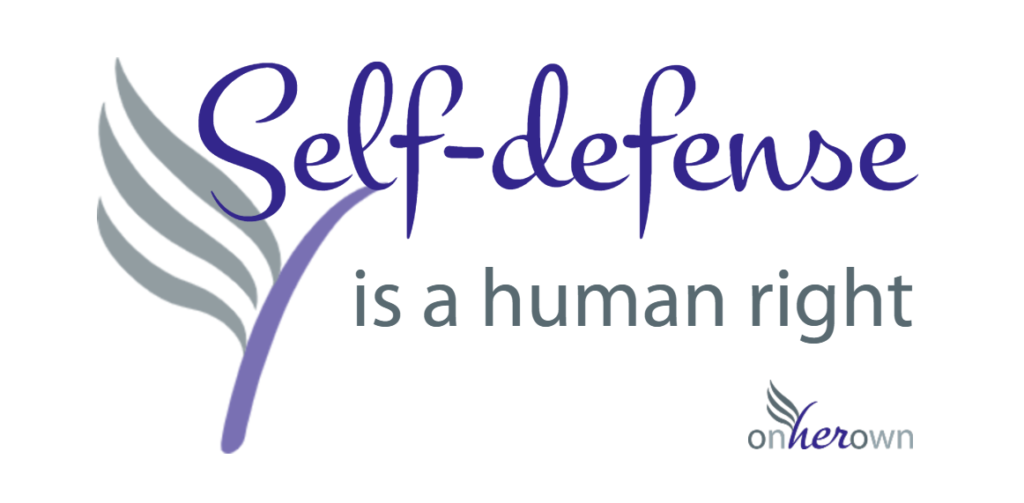
Self-defense is a human right. I say it often here at On Her Own, but it’s perhaps not always very well defined.
It’s the idea that we can stop others from injuring or killing us and it’s nearly universal.
What gets complicated is figuring out what someone hurting us looks like, and when hurting them in return is justified legally, morally, and ethically, not to mention the tools and methods we can use defensively. The general rule is that we can visit back on a person what they have imposed on us, but there are limits: when, and who, and how. How much do we have to be hurt before it “counts” as an injury? Must the damage be physical? Does it have to be an actual harm or simply one that is threatened – and how threatened? How far in the past can we reach and take action against, and still call it self-defense instead of revenge or something else? Is the person who has been hurt empowered to defend herself or must she wait for another to help? Can someone else step in? Must they? What is the level of force that can be used defensively?
It’s an incredibly nuanced, fact-specific set of questions that depends on a complex set of intertwining and sometimes conflicting rules, with answers that can change from second to second. Judgments about what defensive actions may be taken and when are difficult, both in the chaotic middle of a struggle and in the imperfectly recorded and remembered aftermath.
Inside all of those conditions, buried somewhere in the answers to all of those questions, though, there is still a vital truth:
Self-defense is a human right.
Your gender doesn’t matter. Your race, ethnicity, or national origin don’t matter. Your political party doesn’t matter. Your religion doesn’t matter. How you choose to live your life doesn’t matter. None of it matters, at least not morally or ethically. At some point, at some stage, there is a line which nobody may cross when it comes to imposing their will on someone else. We can argue about where those lines are, and what can be done when they are crossed, but here at On Her Own, I believe that the line exists, and that there should be consequences for violating it. What I’m here to do, and I hope you’re continue to join me, is to help you define those lines for yourself – no matter who you are – and be able to defend them in a variety of ways ranging from preemptively ensuring the lines shine brightly to those who might be tempted to hurt you to having the skills to force someone back to their side of the line.
Self-defense is a human right. And it’s not just about being able to fight off an attacker in the moment.




